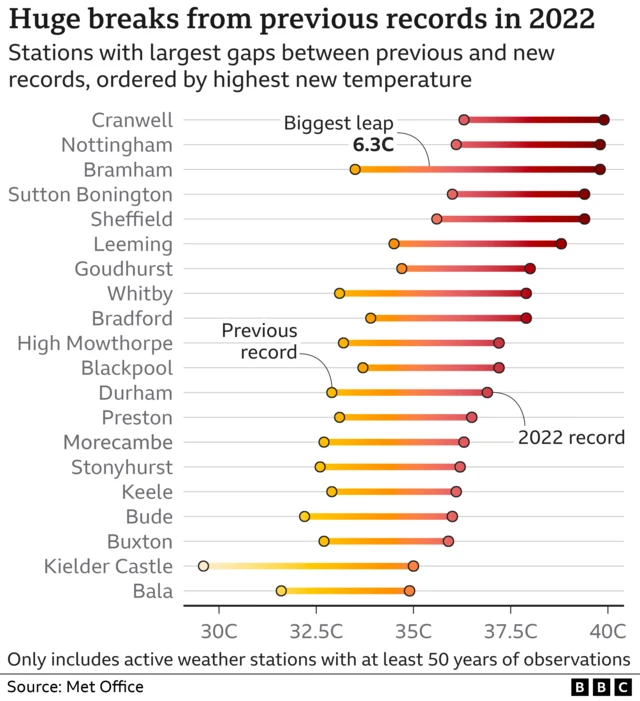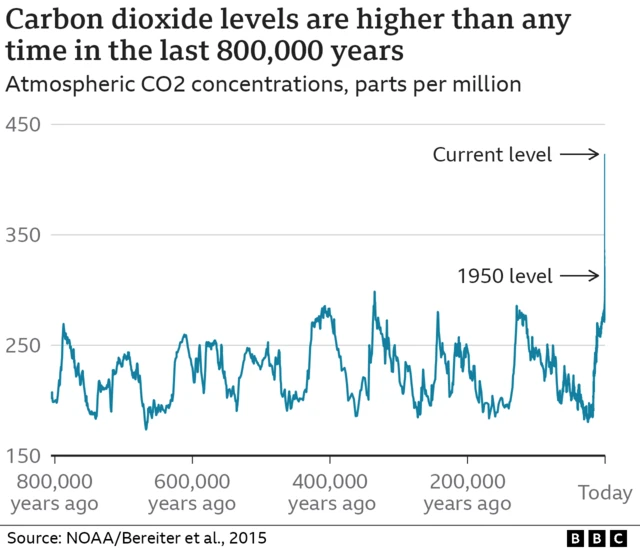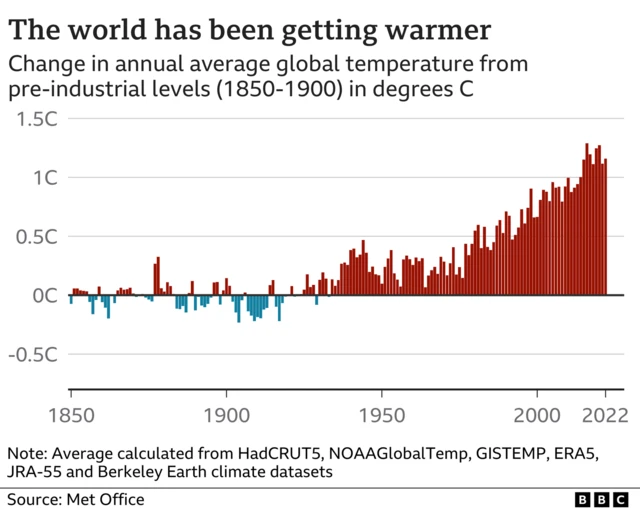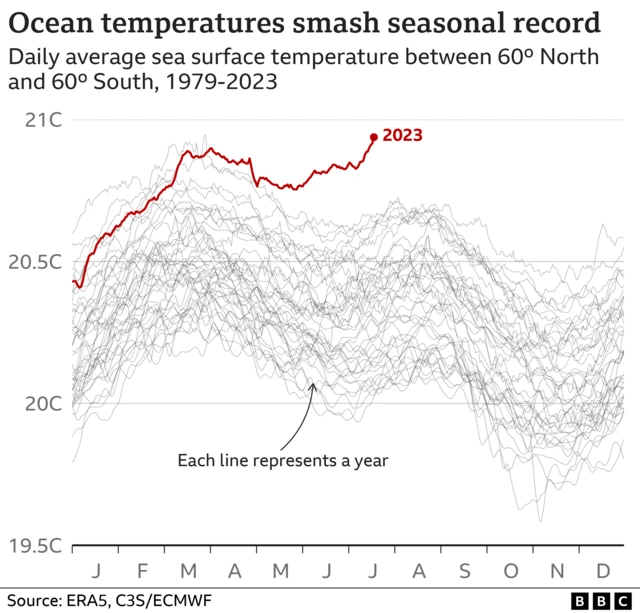
Does looking at average temperatures downplay the dangers?published at 13:46 BST 27 July 2023
 Esme Stallard
Esme Stallard
Climate reporter
Phil Hibberd says putting the focus on average temperatures downplays the dangers, and maximum temperatures are what kill people.
This was a point made by Mike Kendon, author of the latest Met Office report on the state of the UK’s climate released today.
In an interview with the BBC he said: “The extremes of temperature are changing faster than the average temperature.
"This is very significant because it's these extremes of temperature that caused the most significant impacts.
“What we are seeing here is symptomatic, it’s part of a pattern of what is going to happen with more high temperature extremes.. More impacts like we're seeing in Europe from these wildfires, and it really brings home to us that climate change is happening.”
 Image source, .
Image source, .


